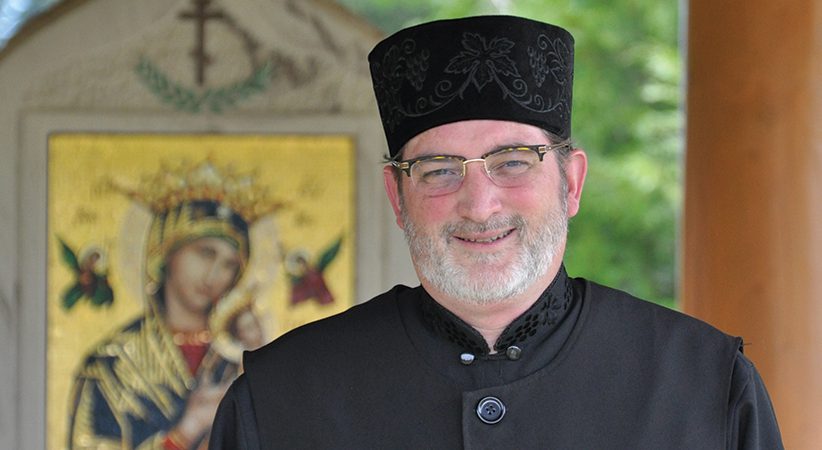Spiritual Fatherhood of Deacons
Why deacons in the East go by the title ‘Father Deacon’
Father Deacon Daniel G. Dozier 1
“Father Deacon? No, that can’t be right.”
Recently I saw this comment in an online discussion regarding the title “Father Deacon” before my name. For many Catholics in the Western tradition, the use of the appellation “Father” seems counterintuitive. Isn’t that title reserved exclusively for priests?
The Old Testament recounts two main periods of priestly ministry: the patriarchal (such as with Abraham, Isaac, Jacob and the 12 Tribes) and the Levitical (after Moses, Aaron and the Tribe of Levi). In the patriarchal period, the priestly sacrificial offerings to God, the blessings and the stewardship and governance of the family fell to fathers as the natural heads of each family and tribe. This leadership was passed on from fathers to sons through the patriarchal blessing, frequently involving prayers accompanied by the laying on of hands (see Gn 27; 48:14-16).
God had planned for this type of paternal-priestly ministry to continue among all of the tribal families of Israel as a nation of priests until the fall with the golden calf at the foot of Mount Sinai, which resulted in the tragic defrocking of all of the tribes except the faithful tribe of Levi. Yet even in the ministry of the tabernacle and the Temple during the Levitical period, the sons of Aaron as high priests and priests, and the other Levites who assisted them and taught the people the Law of Moses, were seen as exercising a role of spiritual fatherhood among all the People of God (see Jgs 17:10).
Fast-forward into the New Testament, and we can see several references connecting apostolic service (see Acts 2:42) to this principle of ministerial fatherhood in the family of God. One of the earliest mentions of the process of vocational discernment comes from Paul’s first letter to his disciple, Timothy. Here Paul exhorts Timothy to consider the qualifications of candidates for both the episcopate and diaconate (see 3:1-13).
What is noteworthy in this chapter is that for ordained ministry specific references are made to the exercise of natural fatherhood in the family as a means for discerning the worthiness of some candidates for supernatural fatherhood in the divine family, for “if a man does not know how to manage his own household, how can he take care of the Church of God?” (3:5). And unlike the provisional ministry of Levites to Israel, the Catholic Church, in order to fulfill her universal mission, now extends participation in ordained ministry as spiritual fathers to all members of every tribe of every nation, in one, holy, catholic and apostolic family.
Within the local Church, then, the bishop as successor to the apostles serves as the true spiritual father and pastor of his diocese or eparchy. He is the icon of God the Father to his spiritual family, as St. Ignatius of Antioch says in his Letter to the Trallians. The presbyters (or priests) and deacons, as his co-laborers in the vineyard of the Lord, image the spiritual fatherhood of the bishop in his pastoral care for the local Church in distinct ways. The presbyter is the living icon of the bishop’s spiritual fatherhood as shepherd. The deacon is the living icon of the bishop’s spiritual fatherhood as servant. Both shepherds and servants function like two hands under the direction of a single head.
|
Like what you’re reading? Subscribe now.
|
In recognition, then, of the participation of both priests and deacons in the spiritual fatherhood of the local bishop, the Eastern Christian churches generally extend the title of “Father” to both, referring to priests simply as “Father” and to deacons as “Father Deacon.” It is important to note that this title is not simply one of honor and affection, but also one of obligation and a sacred trust, since it is a constant reminder of our relationship and accountability not only to the bishop, but to his flock as spiritual children in the family of God.
Father Deacon? Absolutely!
FATHER DEACON DANIEL G. DOZIER is a Byzantine Catholic deacon and director of the San Damiano Institute for Catholic Servant Leadership (SanDamianoInstitute.com). He is an associate professor of Scripture at Sts. Cyril and Methodius Byzantine Catholic Seminary in Pittsburgh.






Comments are closed.